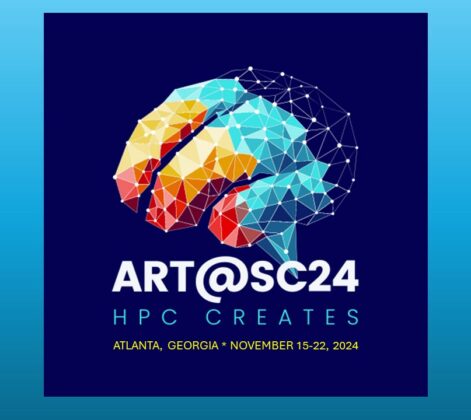Not to mention the fastest visa application ever!!
By: Genito Maure, Climate Scientist and one of the initiators of the HPC user convoy in Mozambique.
Notice and Prepping
As I am becoming addicted to HPC novelty, and more eager to find out what SC editions have to offer time after time (because this community always has news!!!) STEM-Trek read my mind and, this time with Google support, my dream came true for the second time, since my SC-debut in 2018.
Elizabeth Leake kindly informed me “If you are receiving this message, you are among candidates being considered to receive a travel award to attend the EarthSci@SC22 workshop and (SC22) conference November 11-18, 2022.” And added: “We are getting started late with this process, and I apologize for that. Therefore, we must move quickly from now on. If I do not hear back from you by Wednesday, September 21, we will offer your spot to the next delegate on the waitlist (the list is long this year!).”
All the above triggered in me a Turbo mode, especially because Covid-19 had somehow limited our participation in SC events. Of course, Elizabeth immediately heard back from me! On the very next day after receiving support letters from her, the following was done:
- Visa form filled – Checked
- Checked the US embassy site for available visa interview slots – None available for 2022 – Panic!!
- Application for a visa interview waiver – checked
The following day, I received an email informing me when I should take the passport to the embassy for the visa application procedures. Who said panic!? There is no more panic. Not to mention I got the visa in less than 24 hours. This happens to be the fastest visa I ever had in my whole life. Kudos to the visa system in place!!!
Flights and Uber
I travelled from Maputo via Doha, Qatar, to Dallas. I had Wi-Fi onboard so there was less homesickness as I was seamlessly chatting with my family throughout the flights. Technology is so much more advanced!! Who would imagine this a few years in the past? Now it’s my second time in Dallas, Texas. Both times for SC. I now am an “expert” in moving around Dallas. I called an Uber soon as I exited customs. I was soon discussing Geography 101 with the Uber driver – Where do you come from? The inevitable simple question, with a typically long explanation to people unfamiliar with the subject, because you cannot simply show world maps to a driver while (s)he is driving 🙂. As I got dropped at the Hotel… bingo!! This is where Mozambique is located! I showed it to the uber driver. I arrived on a Thursday. A day before EarthSci@SC22 so I could inform jetlag to leave me and return my brain to order in the event.
Just witnessed an accident involving a luxurious car on our way back from Allen City. Oh yes, we went there Friday morning with Team South Africa to explore!
Now we are back in Dallas at the Hutchison Convention Center for 25 minutes looking for a parking space. Sweating on a cold day… but I was healthy. Just had to run from the gate to room 302 to be on time for the first meeting. Greetings everyone… new and known faces to me. But we are all part of the EarthSci family now.
This was one of the most important moments of my SC22 attendance this year. As an earth scientist working in climate/environment modelling – I was mesmerized by the amount and diversity of things that are done out there that I had never heard of. In my notes, I underlined the SAGE project, ready-to-deploy intelligent environment data collection sensors, presented by Pete Beckman, Director of the Northwestern University/Argonne National Laboratory Institute for Science and Engineering. I promise to dedicate proper time to this soon. My brain is tickling to figure out if we can use those instruments to conduct active pollution inventories in Mozambique, for example. Or else, give my students a task to count and classify vehicular fleets that pass through a given route in the jammed Maputo City. Trust me, I will have time proportional to my enthusiasm to implement these ideas. Good thing is that I now have a “follower”- Berny Chaimite, who also attended SC22; this young man will go far, I promise!
SC22
As I am mostly interested in climate-related HPC topics, I started by attending the (sess121): The 8th International Workshop on Data Analysis and Reduction for Big Scientific Data (DRBSD-8) in Conjunction with SC22. One major challenge in the climate research community is how to compress (big) data while preserving metrics and then exchange this data for analysis. In these sessions, I learned from top researchers the advances in the types of compressions to “seamlessly” squeeze climate data and transfer it. So, I just learned that there is also this SZ2/SZ3 (lossy) compression that performs best for Atmospheric and Ocean data. This means if one is able to transfer data to low-bandwidth constrained places, one is able to perform analysis in situ and discuss with colleagues and analyze trends and other important features of the data.
Next sessions attended were on the challenges in training on HPC. These could easily be presented by the SADC (Southern African Development Community – 17 member nations in sub-Saharan Africa). The descriptions made were like a photograph of our situation, namely:
- Poor integration of HPC into curricula
- Lack of HPC teaching skills
- Almost non-existent student clubs for those interested
- Lack of funding
- Poor access to HPC infrastructure
I kept moving around the SC22 schedule on my phone. Next stop: Resources and opportunities for Training and Education (for pre-university students) were presented at Sighpeducation.acm.org! I, personally, believe this is where we should begin: Pre-university! Computational Physics students at my University are a testimony to that. Because of their diverse backgrounds, I try my best to level their programming knowledge. But it was very hard because some of them rely solely on our computer lab to exercise (they do not have Internet in their homes). Their laptops are old and slow – They call them Lentiums (from Lento in Portuguese, meaning slow). Fortunately, there are cloud-based solutions as long as there is access to the Internet, which we have an abundance of on campus.
The famous Google Collab was mentioned during the “How to improve cyberinfrastructure usability by researchers” session. Because of its zero configuration required and free-of-charge access, this seems to be the way forward for our kind of university.
So many opportunities are out there for training and education in HPC. I have noted some and shared them with my students back in Mozambique. For example, from https://deapsecure.gitlab.io/lessons/ one can also learn about Artificial Intelligence (AI) remotely, at their own pace. Just make sure students have passed English 101, which most of them have.
Mozambique is vulnerable – our understanding of how our climate is changing is poor given the low spatial and temporal coverage of climate stations. Some people from the DKRZ came up with an interesting idea to address this gap and presented a poster on the use of AI to bridge gaps in precipitation data.
I urgently need a student to replicate this work to determine usability in my country, I mean, now! Maybe this can be done through US NSF-REU sites? All I know is that there are a lot of possibilities for training students in STEM. First time hearing about MapReduce… the name is self-explanatory. So many new things in my head now.
I am now overwhelmed with everything I learned at SC22. How do I now reduce the dimensions of what I saw and write it down, in bullets, in a to-do list format, and put deadlines to it?
Now, I need further clarification as to why Jet lag is not for amateurs, particularly after one travels back eastwards.




